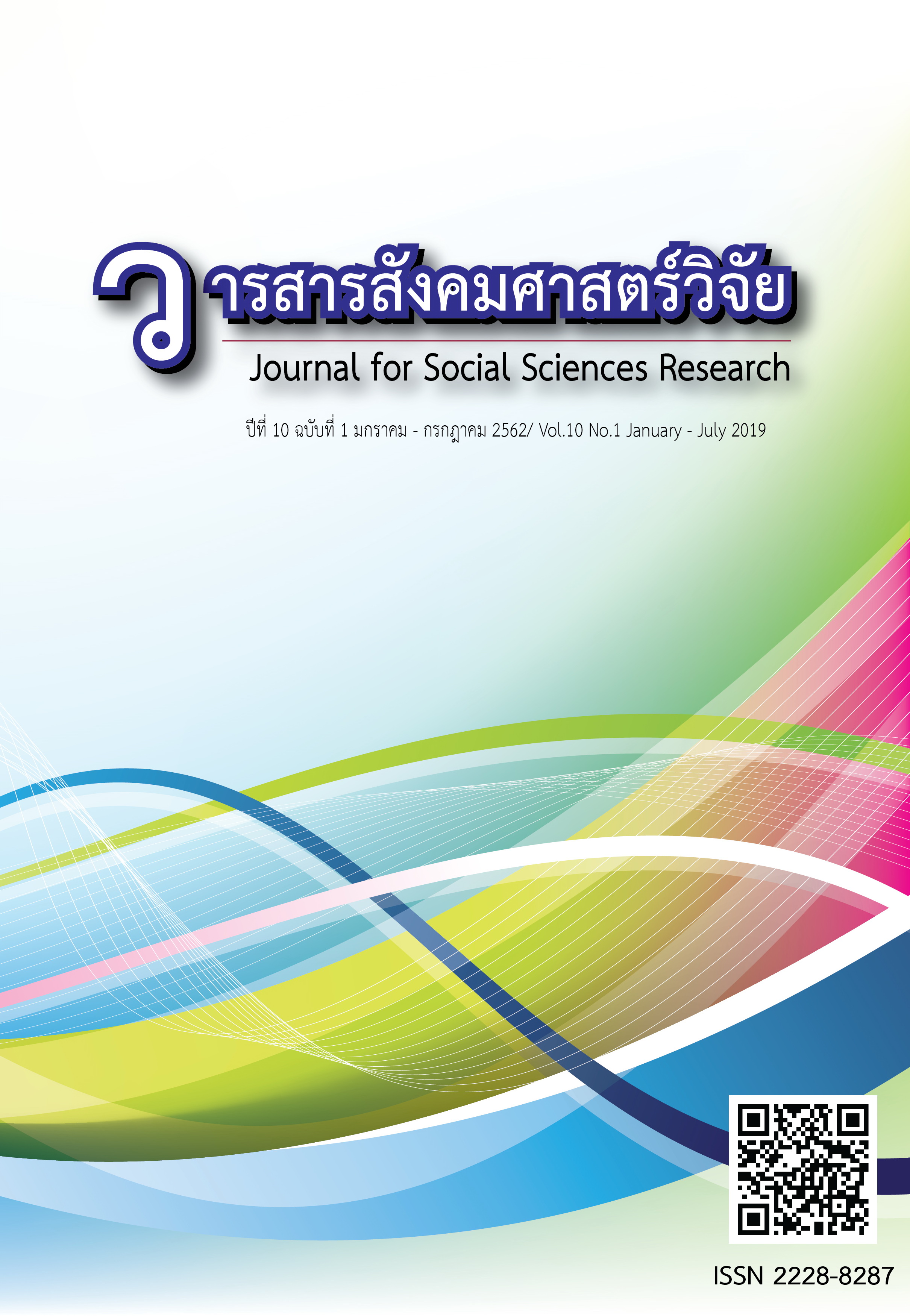RELATIONSHIP BETWEEN LEADER TRAITS AND IMPLEMENTATON SUCCESS OF QUEEN SIRIKIT FUND OF NAKHON THONG COMMUNITY, PAK KLONG BANG PLA KOT SUBDISTRICT, PHRA SAMUT CHEDI DISTRICT, SAMUT PRAKAN PROVINCE
Main Article Content
Abstract
This study was a mixed-method research. It aimed to study: 1) the leadership traits and the successful level of Queen Sirikit Fund implementation; and 2) the relationship between leader traits and the implementation success of Queen Sirikit Fund.The sample consisted of 225 fund members of Nakhon Thong Community in Phra Samut Chedi District, Samut Prakan Province, and the key informants were community leaders/leaders learning center of Queen Sirikit Fund, and officers responsible for Queen Sirikit Fund implementation, totaling 7 persons. Data were collected by a questionnaire and an in-depth interview, and were analyzed with frequency, percentage, mean, standard deviation, Pearson’s correlation, and content analysis.
The results of the study were as follows: 1) overall the leader traits of Queen Sirikit Fund implementation was at a high level. Specifically, the persuasion aspect has the highest average. As for implementation success, it was at the highest level. Specifically, the implementation strengthening had the highest average. 2) The leader traits had positive relationship with the implementation success of Queen Sirikit Fund at the moderate level with statistical significance at .01 level. Specifically, the persuasion aspect mostly correlated with the implementation success of Queen Sirikit Fund.
The guidelines for leader development were: 1) encouraging the regular organization of relevant training activities for community leaders i.e. public speaking techniques, collaborative communication, etc.; and 2) formulating strategies or activities to persuade local people to participate in community activities i.e. organizing public relation campaign to create perception in additional member subscriptions Queen Sirikit Fund in the area, etc.
Article Details
บทความที่ได้รับการตีพิมพ์เป็นลิขสิทธิ์ของมหาวิทยาลัยราชภัฏนครปฐม
เนื้อหาของแต่ละบทความเป็นทัศนะของผู้เขียน ซึ่งที่ปรึกษา บรรณาธิการ กองบรรณาธิการ และคณะกรรมการบริหารวารสารไม่จำเป็นต้องเห็นด้วย หรือร่วมรับผิดชอบใดๆ


